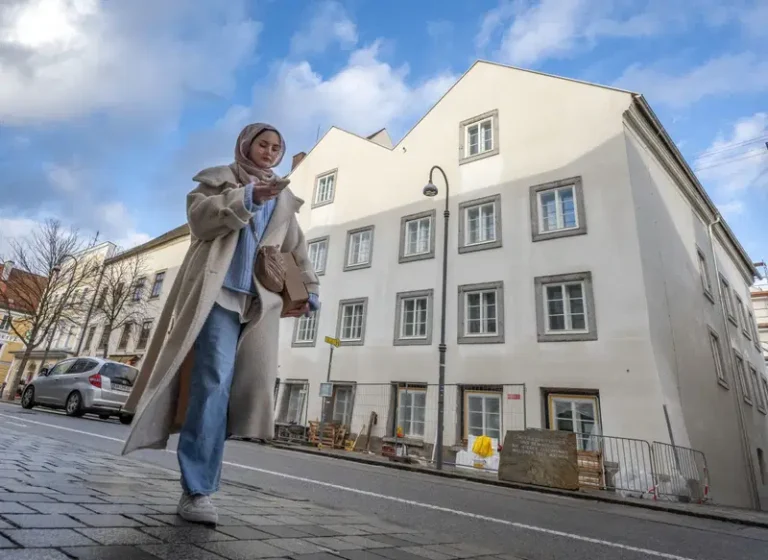
By 1.30pm on election day, with ban on vehicular movement except for election duties, materials had not arrived to commence accreditation and voting. In Ward 11 Unit 18 of Ahoada West, by 3pm, which was past the voting time allowed by the guidelines, materials had not arrived. Same was experienced in several places to the frustrations of teeming voters who came out as early as 7am, determined to ensure nothing stopped them from casting their votes. In the end many were disenfranchised as voting was aborted with many still on the queues into nightfall.
It was the same ugly story in many polling units across the country. Ballot boxes were snatched by thugs. Voting was disrupted by armed hoodlums who chased away voters. INEC officials either refused to upload the results sheets on the INEC central server or changed the figures at the collation centres.
There has been an outpouring of emotions by Nigerians following the frustrations and pains they went through when they went to the polls last Saturday for the Presidential and National Assembly elections.
They spoke on the lessons that were learnt during the exercise and whether they would continue to trust the Independent National Electoral Election (INEC) under Prof. Mahmood Yakubu to conduct a free and fair election in the country.
National President of Middle Belt Forum, Dr. Bitru Pogu:
We’ve learnt a bitter lesson from last Saturday’s election because the INEC chairman explained the provisions of the 2022 Electoral Law telling us that cast votes will be transmitted in real time on the INEC server. While we looked forward to that, unheard of rules were introduced and all they did was votes allocation rather than a reflection of what the people did at the polling stations.
INEC cannot be trusted, it has shown that it is not a credible entity under the leadership of Prof. Mahmood Yakubu and the result we had was a charade. What Prof Mahmood has done shouldn’t just be reversed but he should also be punished for trying to set Nigeria on fire through the unwholesome behaviour he put up contrary to what he himself said was the interpretation of the Electoral Act 2022.
Hon. Goodluck Ibem, President General, Coalition of Southern and Middle Belt Youth Leaders Assembly (COSMBYLA)
The lesson to draw from the last Saturday’s Presidential and National Assembly Elections is that in a democracy, power belongs to the people. For four incumbent governors to lose their Senatorial ambitions is a confirmation that in a democracy anything is possible.
The bitter part of the election is that the National Chairman of the Independent National Electoral Commission, INEC, Professor Mahmood Yakubu compromised and declared someone who failed, as the winner of the Presidential elections. So many people came out for the first time to vote because of the assurance by INEC that the BVAS will transmit the election results from the polling unit to the IREV which will make the process credible.
But the National Chairman reneged on his promise as contained in the electoral law and resorted to manual collation which helped him to declare his preferred candidate as President-elect despite falling woefully in the elections.
Ishaya Durkwa, International Organization for Peace Building and Social Justice, PSJ
INEC assured Nigerians on numerous occasions that it was prepared to conduct a free, fair, and credible election but the pulse of the masses and party agents at the polling units, ward level, and the national collation centre suggests a cruel fraud in the entire conduct of the elections.
There was late arrival of INEC staff, who in many cases did not show up till 3:00 pm for a process that was to start at 8:00 am. Failure of BIVAS machines slowed down the process and left majority of voters waiting and in the end, over 40 percent of voters in many polling units could not cast their votes.
Some INEC staff came without Form EC8A to record results at the polling unit with many electoral officers claiming they were not issued while some only went back to get them after pressure from electorates. INEC also failed to upload results on iReV and adopted manual transmission of results as against what was agreed. Such flaws, pose a cataclysmic threat to the survival of democracy and the very peace and existence of the nation Nigeria.
Anthonia Bature
INEC has upgraded its deceit using technology. The devices they spent millions to acquire were abandoned. Nigerians have every reason to doubt the sincerity of INEC, that is why their officials are to be checkmated to forestall another daylight robbery.
Jethro Izang
INEC has succeeded in dampening our enthusiasm about elections. Their conduct is capable of derailing democracy, the so-called reform in the Electoral Act was not respected as BVAS was largely ignored. This is a cause for worry about their credibility.
Farah Dagogo, representing Bonny/Degema Federal Constituency in the House of Representatives
Regrettably, few minority have succeeded in altering the will and determination of the majority with unrestrained impunity. This election, if it could even be termed so, should rank as the worst in the history of elections in the country. This election lacks transparency and credibility, it was a sham and charade, which if allowed to stand, would have thwarted the resolve of majority of Nigerians and set a bad precedence.
O C Higher King, Rights activist and lawyer
This is the worst election ever conducted in the history of Nigeria. And I can tell you there is palpable fear and anger. Can’t you see that everywhere is quiet? Does that quietness look normal? Even APC members are not celebrating, everywhere is quiet as a grave. People are disenchanted with the system, you see result sheets with so many cancellations and correction fluid. Where LP scored 217 which was counted at polling unit, it came out at collation centre as 27.
The most painful aspect is that no lesson has been learnt at all, because those who allowed themselves to be used to carry out these electoral robberies are the same youths who are hungry and have been complaining of the pains of bad leadership. Just because someone gave them $100 or even a $1000, that he will exhaust tomorrow, he will offer himself to be used for electoral fraud. I weep for Nigeria and I don’t think it’s over yet.”
There will never be free and fair elections in Nigeria until . . .
Civil Liberties Organisation (CLO) in its monitoring and evaluation report on the election in Rivers noted that the most critical lesson learnt was that no matter the sophistication of the technology deployed, there will never be free and fair elections in Nigeria without any commitment to consequence action against key state and none state actors who deliberately compromise the process for selfish gain.
Rivers CLO report, signed by Styvn Oboekwe and others recommended, “that the electoral officers and security personnel who collaborated with the government to trample on the will of citizens be fished out and prosecuted. That the provisions of the Electoral Act 2022 be strictly applied to ensure that anyone found to have contravened any of the provisions in relation to the electoral process be brought to book with a view to ensuring that a free and fair election is achieved and the vote of the people determines outcome of the election.”
Enefaa Georgewill, Chairman, Rivers State Civil Society Organisations, said, “INEC lacks the moral and technical competence to conduct any election in Nigeria, particularly under Prof Mahmood. He has shown he does not have the moral and mental capacity to manage the process, in spite of the huge material provisions given him to deliver. Under Mahmood, INEC deliberately sabotaged the electoral process. That is undeniable.”
Oju Odezi in his reflection on the implication of the presidential polls said, “we’ve lost more than we gained from this election. Our loss comes from the destroyed confidence and enthusiasm for the birth of a new nation from a transparent electoral process which can inspire citizens to further improve participation. Yes, Obi may have changed the dynamics but with an assurance from INEC that result upload is not mandatory, the gubernatorial elections are going to be owned by the governors”.
According to Iniruo Wills, a legal practitioner and Co-Convener Embasara Foundation, Ijaw Think Thank for Good Governance: “the biggest lesson is that no lesson has been learnt from the lessons of history.”
Elder Joseph Ambakederimo, Convener, South South Reawakening Group, said: “The saying that the people own the power to decide who governs them is still staring us in the face. The up turning of traditional vested voting patterns were slightly changed and this is attributable to the transparency of the process even if we have pockets of skirmishes in isolated places. INEC have done their work, they have delivered on the mandate given to them by the constitution.
Comrade Morris Alagoa, environmentalist said: “I am actually not in the right mood to express myself on the subject matter, especially as INEC share same colour with the judiciary now. Those with cases in court would still say the judiciary is the last hope of the common man; even when those involved may not be common men and might have unduly influenced the judicial process in their favour. I say INEC being viewed like that, as very selfish and roguish folks could defend unearned victories.
Dr Kunle Olajide, former Secretary of the Yoruba Council of Elders, said “this last Saturday election, in my opinion, is comparatively the best INEC has given the country in recent times. Though, there is always room for improvement, but the commission has shown integrity in its affairs. I am not surprised that the Labour Party is springing surprises in some states, particularly Lagos state. The voters in the southern region are well informed and made decision based on their convictions.
Former Nigeria’s envoy to the Philippines, Dr Yemi Farounbi said non deployment of technology affected the transparency of the election but added that there are glimpses of hope. According to him, “the use of Bimodal Voter Accreditation System, BVAS, checked the menace of multiple voting in the nation’s electoral system. When the Senate was debating that deploy of technology was not ripe for our election, INEC insisted on its usage which gave Nigeria high hopes that technology would play an important role in our election, hence, they believed manipulation would be absolutely impossible. But the refusal of INEC to open its IReV portal while collating the results gave the other parties the impression that the process is not transparent enough, hence, the doubt about the process.
The former zonal publicity secretary (south west) of Peoples Democratic Party (PDP), Hon Ayo Fadaka said that “The basic lesson learnt as far as I am concerned is the quality of preparations by the political Parties. For sure the APC prepared better, it was thinking always and devised ways to get victory. Until the end of November, the President elect was up in arms against the use of BVAS, consistently calling for its non application, and suddenly went mute thereafter.
We did not take notice of this or queried the sudden change of heart by Tinubu, we were busy dancing and revelling around the nation. INEC clearly repudiated the gains of the past years for whatever reasons known to its management, and suddenly invoked the ghost of Ovie Whisky who resurrected immediately.
As they say, no crime is perfect, evidence of vote manipulation abound in the result with both Bauchi and Gombe allocated the same number of votes with parties having identical figures in those states.
No one can trust INEC any longer, it is an organization that descended from its impartial level into the fray. It continues to fail to give cogent reasons for its compromised and criminal abandonment of the BVAS in uploading results. Under the Buhari government, every institution has been assaulted, even the judiciary can no longer command the respect of the citizenry. The game plan of the APC was to compromise the election and it was cleverly done. They simply captured INEC and made it do its bidding helplessly.
Publicity secretary PDP, Ondo state, Kennedy Peretei, said, “INEC would have done better by providing necessary materials in enough quantities and arrive polling units on time as stimulated by law and their own guidelines. But beyond all of these, the youths of this country have spoken very loud in these elections, creating a new narrative.
A public analyst, Hon Zadok Akintoye: “On lessons learnt, I believe it’s in multiple phases. For INEC the lesson would be to ensure that the procedures are well agreed with the political parties before election with a clear understanding of the consequences where infractions are noted. For the political parties, I believe this election has helped to underscore the citizens’ impatience with
under-performing governments and parties. It’s a lesson in people’s power. For the security agencies, I believe they performed quite well and should be encouraged. We have not yet achieved the objective of a just, equitable and fair society, but with each unit in this processes doing what they should do and how they should, I believe we will eventually get the nation of our hopes.
Chairman of Christian Association of Nigeria (CAN) in Kaduna State, Rev John Joseph Hayab: “Many Nigerians are already saying INEC can not be trusted but INEC also has another opportunity to win their trust by putting everything in place for the gubernatorial election and making sure voters decide who wins not collation centers or greedy returning officers announcing who paid them as the winner.
Suleiman Abdul-Azeez, Spokeperson of the Coalition of Northern Groups (CNG): “What we saw was a considerably improved free and fair atmosphere, we don’t see any inadequacy that would warrant call for total cancellation of the election.
President of the Arewa Youth Consultative Forum( AYCF), Alhaji Shettima Yerima, said “the important lesson that we learnt from the last Presidential and National Assembly elections is that no election anywhere is perfect. Secondly no technological innovation is infallible. Thirdly, we have learnt that the election was also a proof that it was not premised on the home-base factor, because Bola Ahmed Tinubu lost Lagos to Peter Obi.
(Vanguard)







